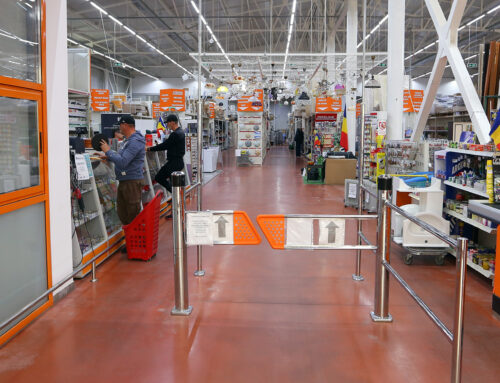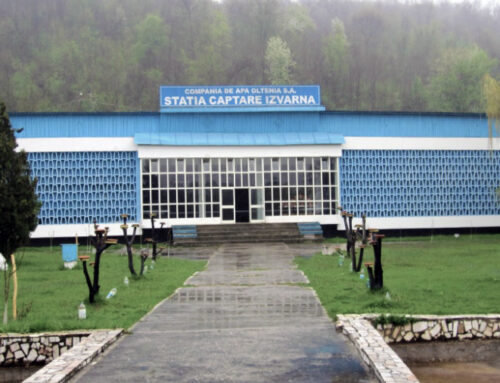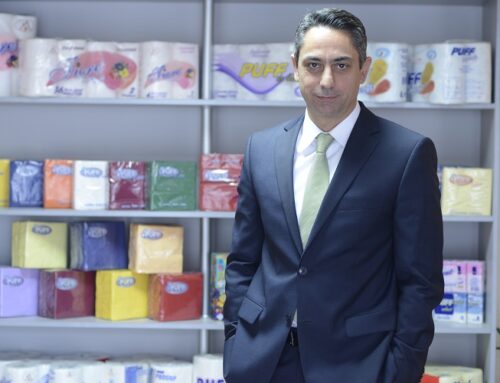
Ovidiu Dranga, Romania’s Ambassador to Poland, has played a significant role in helping his country make the challenging transition to a dynamic modern economy and consolidated democracy. He previously served as Ambassador to Belgium (2008-2012), Spokesperson and Deputy Foreign Minister, Deputy State Secretary in the Ministry of Defence, Director for NATO and Strategic Issues, as well as Political Director in the Ministry of Foreign Affairs, and in many other important positions. The Ambassador completed post-graduate studies at Harvard (Master in Public Administration) and other prestigious international institutions, speaks fluent English, French and Italian. He discusses Romania’s foreign-policy priorities and goals.
European Times: What do you regard as some of the high points of your diplomatic career?
Ovidiu Dranga: I was lucky to enter the Ministry of Foreign Affairs at a time when Romania was facing transformational post-revolutionary challenges. I believe that I was among those who tilted the balance towards a “Go West” orientation for Romania. Belonging to Romania’s new generation of diplomats, I and others were at the forefront of our country’s preparations to join NATO and the EU. I opted to become part of the team which was handling Romania’s NATO integration, and one of the high points of my career was the Prague summit of 2002, when Romania was formally invited to join NATO. As Ambassador to Belgium and, since 2013, Ambassador to Poland, I have participated in Romania’s foreign policy transition from a NATO and EU candidate state to a full member of both groups.
European Times: How is Romania performing as a member of EU and NATO?
Ovidiu Dranga: Thanks to meaningful internal interagency coordination and effective interaction between Romanian and relevant international structures, Romania is able to “punch above its weight” diplomatically and militarily. Our country has earned a reputation as a valuable EU and NATO partner, one that is stable and responsible, generates realistic projects, proposes workable solutions, takes risks and builds flexible yet meaningful coalitions.
As Romania readjusted its foreign policy to reflect its EU and NATO identity, our country has initiated or co-authored several important regional projects, including the Black Sea Forum for Dialogue and Partnership, Black Sea Synergy and many others, to which I have been closely associated. I had the chance to work at the NATO Studies Centre in 2003. In 2007, I contributed to the launch of the “Post-Conflict Reconstruction and Stabilisation” course. More recently, I capitalised on some opportunities for building institutional capacity through the Advisory Council on Romanian Communities Abroad and the Advisory Board on Official Development Assistance (ODA), both coordinated by the Ministry of Foreign Affairs.
European Times: What are your goals for Romania’s foreign policy in the coming decade?
Ovidiu Dranga: In my opinion, Romania should assume a new geopolitical profile that would emphasize its crucial geostrategic position on the eastern flank of the Euro-Atlantic community as a frontline state. Another highlight of my career was the November 2015 regional summit of nine states located on the eastern frontier of NATO and the EU. The Romanian Embassy in Warsaw was instrumental in organising this meeting of the so-called “Bucharest Format”, as a direct contribution to the success of the NATO Summit in Warsaw.

European Times: What are your priorities as Ambassador to Poland?
Ovidiu Dranga: My priorities derive from the strategic partnership between Romania and Poland. We recently adopted a new action plan for this partnership over the next 10 years; security and defence are priorities. As ambassador, I plan to contribute to the evolution from a stage in which both countries concentrated on harmonising their agendas to a new stage in which we focus on building together more sophisticated strategic regional, European and Euro-Atlantic connections. The Bucharest Format Summit was the first step. Central Europe needs a strong and articulate presence in Brussels, a pragmatic voice which provides solutions for NATO and the EU as a whole in these uncertain times, and Romania and Poland can be both initiators and facilitators of such an inclusive and innovative approach. It should not be a surprise that Warsaw and Bucharest are taking a proactive attitude to new geostrategic realities since NATO and EU unity and strength are our common goals.
European Times: What are your specific goals for Romanian-Polish relations?
Ovidiu Dranga: Romania and Poland have forged a dynamic bilateral and multifaceted relationship that has seen spectacular development in the past three years. I am currently advocating for more substantial economic cooperation between the two countries, for example concerning the North-South corridor connecting the Baltic Sea to the Mediterranean and the Black Sea. Innovation, defence industry and support for SMEs are other areas where Poland and Romania can work closer together. The Romania-Poland Business Club was founded in 2013 and the new Polish-Romanian Chamber of Commerce will be launched soon. In November 2015, the Romanian embassy organised the first Francophone Innovation Forum in Warsaw, and Romania will be the partner country in a tourism fair in Warsaw this year to test our “Go Romania” pilot project. Over the past year, we have also stimulated new collaboration involving Romanian, Polish and international research institutions.
European Times: How is Romania’s relationship with Poland boosting FDI in both countries?
Ovidiu Dranga: In 2015, Romania achieved 3.7% GDP growth and attracted more than €3 billion in FDI. Of course more needs to be done, particularly concerning infrastructure development, and Poland and Romania can work together in the Via Carpathia project for a vital road network in Central and Eastern Europe. The most attractive sectors for Romanian investors in Poland are ICT, construction, industrial facilities, services, e-commerce platforms and R&D. At the same time, more and more Polish investors are targeting Romania. Poland is a model for Romania in the successful implementation of EU funds, while Romania’s efforts to fight corruption could be a model for Central and Eastern Europe. A new direct flight between Cluj-Napoca and Warsaw will help to strengthen ties between the two countries, not only economically but also culturally. The Romanian Embassy in Poland will continue to promote the Polish-Romanian partnership.




